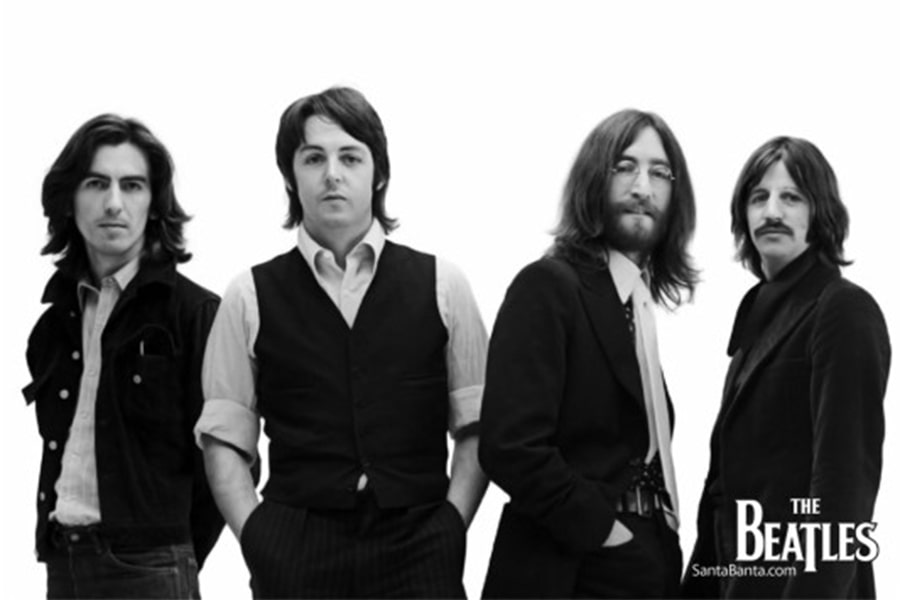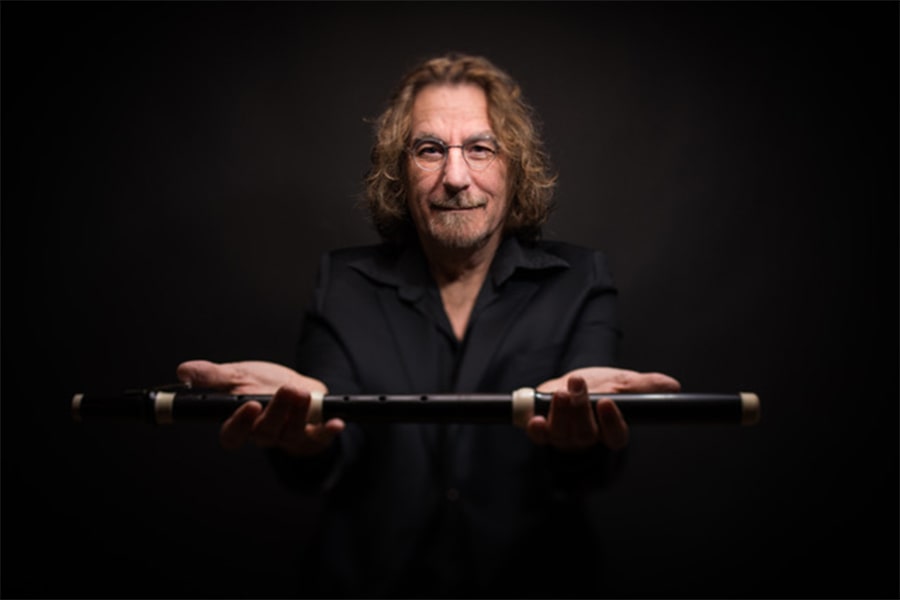A Course on The Beatles Is One of CMU's Greatest Hits
By Kelly Saavedra
All things must pass, according to George Harrison, who rose to international fame as lead guitarist of The Beatles. But the popularity of a course at Carnegie Mellon University on the legendary rock band from Liverpool shows no signs of waning anytime soon.
“The Beatles” is taught by Professor Stephen Schultz, a professional flute player who was hired in 2002 to teach Baroque music, a style of 18th century classical that originated in Western Europe. A meeting with the head of the music school opened the door for him to expand his course offerings beyond Baroque and gave him a platform for demonstrating to younger generations why the Fab Four — John Lennon, Paul McCartney, Harrison and Ringo Starr — is the greatest band of all time.
“I was asked what else I wanted to teach, and I had this sort-of wish list. So, I said, ‘Well, I’d love to teach a graduate course on the symphonies of Mahler, and … I’d love to teach an undergraduate course for non-music majors on The Beatles.’”
His wishes were granted. The rest is, shall we say, music history.
Why were the Beatles so influential? What exactly caused Beatlemania? The reasons are as much cultural as musical, and throughout the course the two elements are studied simultaneously.
“You know how they say if you do what you love, you’ll never work a day in your life? Well, Stephen Schultz is living that life,” one student who took the course said. “The man is so into The Beatles, it’s almost insulting to consider myself a fan of their music. This class felt like reading the Wikipedia page on The Beatles and clicking every link as you go. Overall, it was a fun course, and I would take it again.”
Since making its debut in fall 2003, enrollment in “The Beatles” has grown exponentially — topping out at around 200 students. Due to the pandemic and classroom size, the course is currently capped at about 120 students.

“It’s a popular class obviously because it’s so different than what they normally have to take for their majors,” Schultz said. “Mostly, it’s an oasis for the students who are studying subjects like mechanical engineering and computer science. They get to come to class and listen to some great music.”
Well, not everyone thinks it’s great music.
Some of his students begin the class as skeptics, baffled as to why he is still listening to the band after 50 years and asking him to prove to them why The Beatles are so great. It doesn’t take long for him to win them over.
“After only two weeks, I’m getting emails from students saying, ‘Wow, I’m listening to music differently now because you’re pointing out lyrics and how they combine with the instruments,’ and other things. By midsemester, they’re all carrying their playlists around with Beatles songs on them and they all love it! So, it’s very rewarding for me,” he said.
Many of his students try to turn him onto some of their favorite bands — Metallica, Tool or Radiohead, to name a few — and he does find them interesting. But he feels most of today’s music has more style than substance, whereas the Beatles wrote captivating melodies, interesting harmonies and became incredibly innovative once they retreated into the recording studio.
“They experimented with slowing their voices down, doing backwards guitar parts, adding tape loops of wine glasses and sea gulls and Paul laughing,” he said. “They started doing all these things that have been in the atmosphere with classical music for many years now but were never really used before in the realm of pop music.”
As a result, Schultz said, their songs became much more complicated, and their lyrics became far more interesting. That progression — from the early Beatles into their experimental phase — is what he finds the most fascinating.
"What I care about is that they’re learning how to listen to music."
— Stephen Schultz
Students say they enjoy how interactive the class is, and they appreciate how interested Schultz is in their thoughts. In fact, praise for "The Beatles" is so consistent, the course evaluations sound almost like a broken record.
“My favorite class at CMU!” one student wrote. “I was really able to learn not only about The Beatles but life lessons as well. Amazing professor.”
“Fantastic course!” wrote another. “Professor Schultz shows such an appreciation for his students’ work and The Beatles. I really liked his comments on all the assignments and how he always wanted to hear our thoughts on what we listened to. Great interactive class.”
Schultz hopes his students walk away from the course with an appreciation for The Beatles, but if they still don’t like the music, he’s okay with that.
“What I care about is that they’re learning how to listen to music, and not just saying ‘I like this’ or ‘I don’t like that.’ I hope the course gives them the ability to be more critical and evaluate what they listen to more, and I hope it encourages them to listen to what I would call more interesting music,” he said.
The first time Schultz listened to a Beatles song, he was on a school bus in the seventh grade and, truth be told, he didn’t like it very much.
“I just remember thinking, ‘Gosh, that music’s kinda weird,’” he said.
How times have changed.
He saw The Beatles perform live in concert once, at the Hollywood Bowl in Los Angeles, but he says he “only saw them. I didn’t hear very much because there was so much screaming going on.”
Imagine all the people.

